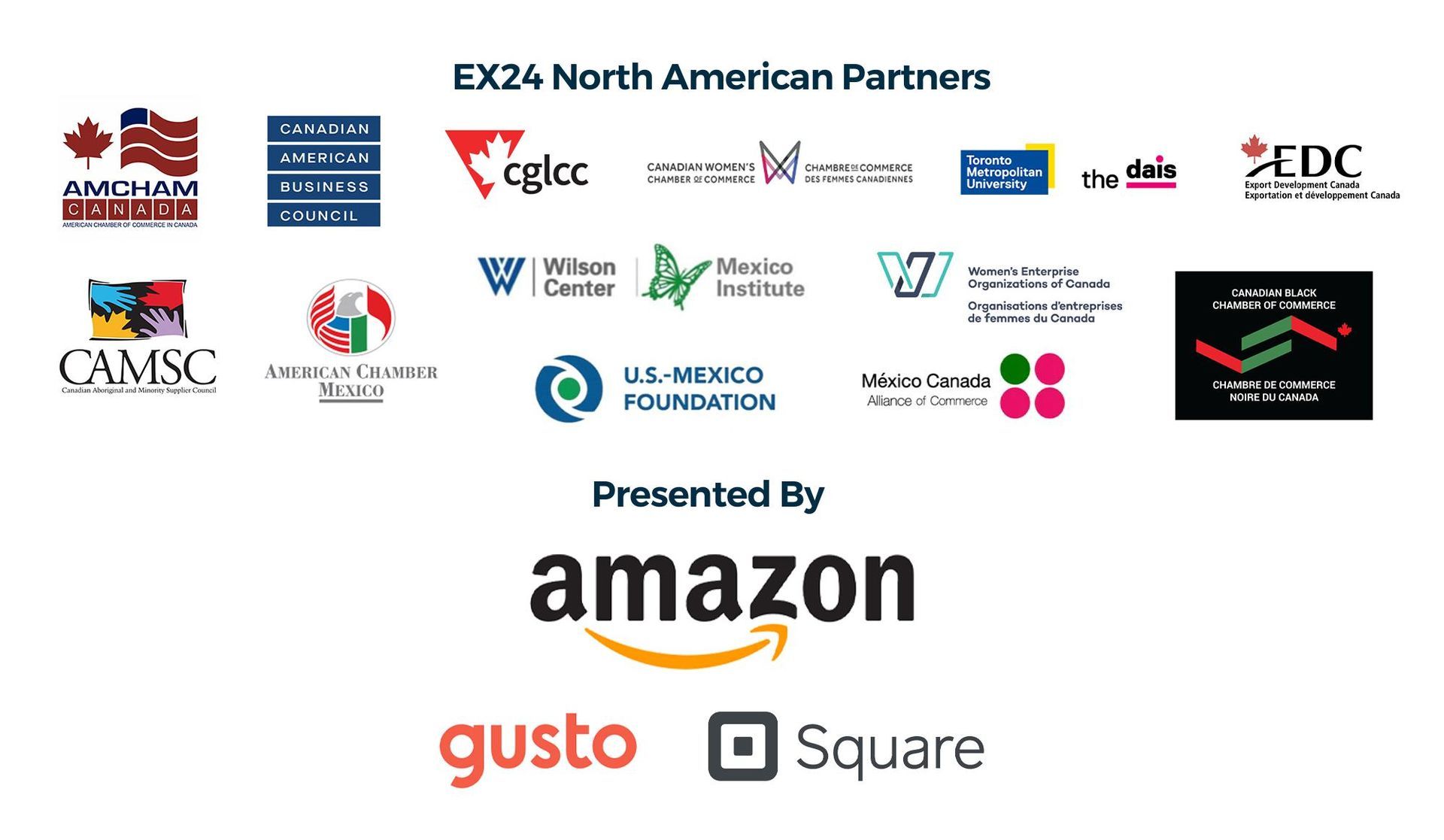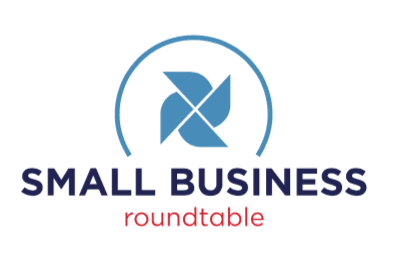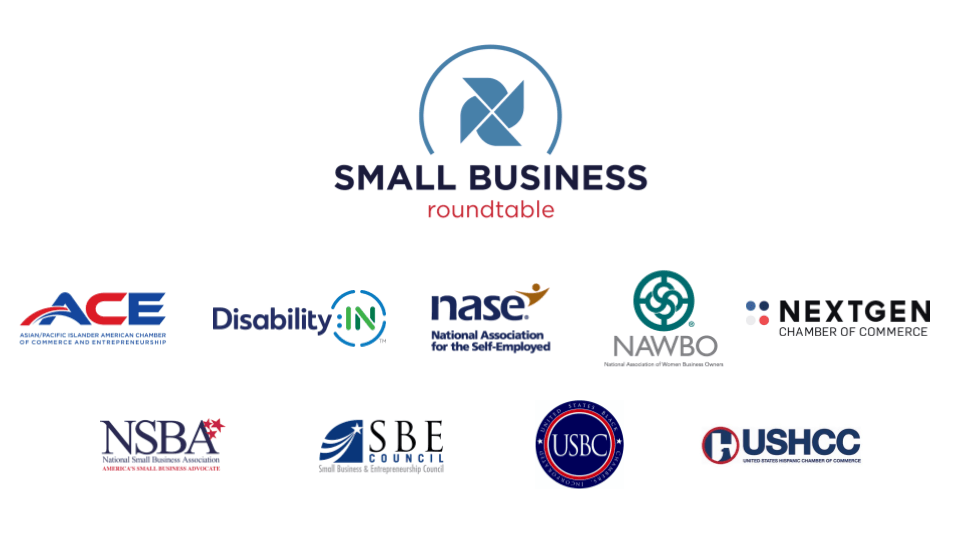Sign on Letter: The RESTART Act will Give Small Businesses the Support they Need Right Now
Click Here to Sign On
Click Here to Sign On
As current and former CEOs of some of America’s largest companies, major trade associations, and successful small businesses, we know that small businesses are essential to our country’s economic and social health. They employ almost half of all private-sector workers and account for 44 percent of U.S. GDP.
Small businesses are too critical to our country’s economic strength to let fail. From retailers and restaurants to consulting firms and manufacturers, small business owners are facing a future of potential financial ruin that will make the nation’s current economic downturn last years longer than it must.
While the Paycheck Protection Program (PPP) has provided short-term relief for many, that lifeline is coming to an end. Another round of PPP would certainly be helpful for many of these businesses, but the hardest-hit sectors will need much more significant and sustained support. Although our country is in the process of reopening, it is hardly a return to normal, and many businesses may be required to close again. Most small businesses don’t have enough cash in the bank to weather more months of reduced revenue and customer traffic. To survive until a vaccine is widely available, millions of small businesses will require longer-term support from the federal government.
At this moment of crisis, we urge you to transcend partisanship and forge meaningful agreement on an assistance package to help our struggling small businesses and, in turn, tens of millions of Americans. We believe that assistance should embrace the following principles:
- Federally guaranteed loans, at favorable terms, that will enable small businesses to transform and sustain themselves through 2020 and well into 2021. Support must last for longer than just the next two or three months.
- Businesses should have flexibility in how loan funds are used.
- The hardest-hit businesses should be eligible for at least partial loan forgiveness. Any forgiveness should be limited to small and mid-sized firms that have suffered significant revenue declines and are not publicly traded.
- Relief needs to be delivered expeditiously. Building on the existing PPP infrastructure would be one way to quickly stand up a new loan program.
- These funds must flow to all small businesses in need, particularly those run by people of color, who have traditionally had less access to capital. A portion of funds should also be directed toward strengthening community development financial institutions (CDFIs) and minority depository institutions (MDIs).
Strong bipartisan support for Senator Michael Bennet and Senator Todd Young’s RESTART Act—which embodies all of these principles—demonstrates recognition of the need for this kind of sustained support. We believe something resembling the RESTART Act must be in this next package.
This is not a call for bottomless handouts. It is a defining moment to show how capitalism can benefit all Americans, particularly entrepreneurs who have been forced to shutter or reduce the capacity of their businesses through no fault of their own.
We cannot stress enough the urgent need to act. Every day that passes without a comprehensive recovery program makes recovery more difficult. By Labor Day, we foresee a wave of permanent closures if the right steps are not taken soon. Tens of millions of Americans have already lost their jobs in this pandemic. Allowing small businesses to fail will turn temporary job losses into permanent ones. By year end, the domino effect of lost jobs—as well as the lost services and lost products that small businesses provide—could be catastrophic.
Republicans and Democrats already agree that small businesses are essential to the fabric of our communities and economy. It is time to put that belief to work. We urge Congress to support these principles in drafting the next round of COVID-19 relief legislation.
Small Business Roundtable Launches Report Highlighting Digital Adoption and Barriers Across Small Businesses.
The Small Business Roundtable (SBR) congratulates William Briggs on his confirmation by the U.S. Senate to serve as Deputy Administrator of the Small Business Administration (SBA). SBR had the opportunity to work with Deputy Administrator Briggs during his previous tenure at the SBA, including during the COVID-19 pandemic, when swift and coordinated action was critical to delivering relief and resources to millions of small businesses across the country. We look forward to working with Deputy Administrator Briggs once again to elevate the voice of small businesses, foster innovation, and support a resilient and prosperous small business economy.
Pivotal Role of Online Selling Highlighted in Small Business Roundtable Report
A recent TechNet-Ipsos survey looked at the role e-commerce marketplaces (think Amazon, Walmart online, Etsy, etc.) play in the small business economy. In short: these marketplaces are becoming more and more meaningful for engaging customers, in a large part by addressing competitive disadvantages small business owners face. From expanding customer reach to reducing operational costs, the survey underscores how these platforms are empowering small retailers to thrive in a competitive and evolving digital economy. As small businesses increasingly adopt multi-channel strategies, e-commerce has emerged as a cornerstone of their success. Survey Highlights: The Digital Advantage For many small businesses, finding and connecting with customers is a constant uphill battle. Traditional methods, such as relying on foot traffic or expensive advertising campaigns, often fall short. Yet, 92% of respondents noted that e-commerce marketplaces make it significantly easier to reach potential customers, while 88% emphasized the ability to expand into international markets. These platforms effectively eliminate geographic constraints, allowing small businesses to tap into global audiences without requiring hefty marketing budgets. Running a small business also requires significant effort towards the management of financial demands, which E-commerce marketplaces tend to ease the burden of. According to the survey, 85% of small business owners reported that operating on the listed E-commerce platforms helped reduce overall expenses. Additionally, 82% highlighted the transparency of costs on e-commerce platforms compared to traditional sales channels. This clarity gives business owners the confidence to plan, invest, and grow without uncertainty and hidden fees eating into their margins. Perhaps most importantly, e-commerce platforms give small businesses the tools needed to stay creative and adaptable. From analytics that uncover customer trends to AI-powered systems that streamline daily tasks, these marketplaces are more than just places to sell—they're partners in helping businesses grow and thrive. It’s no surprise that 90% of small business owners highlighted the value of these tools in launching new products and running effective ad campaigns. Small businesses are thriving thanks to e-commerce marketplaces, which open doors to wider audiences and provide powerful resources for scaling and success. According to the TechNet-Ipsos survey, platforms like Amazon, eBay, and Etsy are leading the charge, helping small retailers unlock new opportunities. By addressing key barriers for small businesses, e-commerce marketplaces are leveling the playing field for those hoping to navigate an ever-changing retail landscape. E-Commerce and Brick-and-Mortar: A Symbiotic Relationship You CAN have both. Contrary to the narrative that e-commerce threatens traditional retail, the survey reveals a mutually beneficial relationship. Nearly 80% of respondents said their success in e-commerce has created opportunities to feature their products in physical stores. Additionally, small businesses with both e-commerce and in-store presence often see complementary growth. Customers who discover products online may visit physical stores to make purchases (looking at you, last-minute holiday shoppers), while in-store shoppers who can’t find exactly what they need often turn to the retailer’s e-commerce site to complete their transaction, allowing digital and physical retail to reinforce each other. Conclusion: E-Commerce as a Growth Engine for Small Businesses E-commerce marketplaces have proven to be indispensable for small businesses, offering cost-effective solutions to grow, streamline operations, and connect with customers. These platforms are far more than sales channels—they are engines of growth and innovation fueling the Main Street stores we know and love. For policymakers and stakeholders, it is key to recognize the synergy that exists between E-commerce and small business. Efforts to regulate or constrain leading e-commerce platforms could inadvertently harm the small business community, restricting innovation, alongside access to the tools that empower small retailers to remain competitive and thrive. E-commerce is not just a lifeline—it is the foundation for the future of small business success.

Small Business Roundtable hosted its third annual Entrepreneurship Exchange 2024 (EX 24) in Toronto, Canada on Wednesday, September 4 and Thursday, September 5, 2024. This year’s event featured a welcome dinner; a half-day event consisting of panels, fireside chats, and keynote addresses; a roundtable with North America policy experts; and a closing reception with a focus on three main themes: Navigating the New Normal: The Shifting Political and Economic Landscape and Their Implications for Business in North America; The Innovation Trifecta: Where AI, E-Commerce, and Policy Collide for Small Business Growth in North America; and Securing Our Future: What’s Happening in North American Energy and How Policy Can Help
Last week, the Small Business Roundtable (SBR) joined with a number of its members in submitting comments in support of the Small Business Administration’s (SBA) proposed rule breaking down barriers for entrepreneurs with prior justice involvement. You can read the full comment here . Under current regulations, individuals seeking access to various SBA loan programs may be deemed ineligible for loans if they are on parole, on probation, or otherwise have a criminal history record. Research has shown there is little to no correlation between a qualified borrower’s criminal record and their ability to repay borrowed funds. Additionally, the SBA has found that preventing justice-impacted individuals from accessing loan programs could increase the rate of recidivism among returning citizens while denying them an important channel to economic stability. While the proposed rule represents a critical step towards expanding access to capital for entrepreneurs with prior justice involvement, SBR will work with the Administration and Congress to address more opportunities to ensure participating lenders follow the SBA’s lead.
Throughout the pandemic, Small Business Roundtable (SBR) chronicled the need for small business owners to take their business online. In fact, embracing e-commerce was one of the many ways entrepreneurs survived one of the most challenging business environments in decades. From iconic restaurants utilizing delivery services to retailers offering goods on overnight-made websites or online marketplaces, small businesses leaned into online sales and digital tools to survive, and in many cases, flourish. Since the country has re-opened, I’ve been fortunate to reconnect with small business owners around the nation and hear their journeys. For many, leveraging technology has been a common response to “what’s different” about your company now. Small businesses are increasingly embracing the role of e-commerce, which is contributing to strong economic growth in this sector during the first years of the Biden Administration. In fact, the Biden Administration just recently announced more than 10 million new business starts – many of which rely on e-commerce to gain customers or digital tools to run their business. The breaking of the digital divide is finally paying the entrepreneurship dividends many of us hoped for. Earlier this month, I had the opportunity to explore one of the largest e-commerce platforms when I was in Seattle for the Amazon Accelerate 2023 conference. During the conference I prioritized spending time with some of the sellers attending the conference. Small business owners’ stories are one of the great benefits of my job, and these stories did not disappoint. There was the wreath maker, the lice-fighter, and of course, a celebrity seller (whose own story on the need for accessible products for diverse communities resonated with the audience)! Their stories had a common theme: selling online has transformed their lives. It put their product in front of an unimaginable number of customers. It’s not easy, and it isn’t overnight, but with the right combination of customer engagement and reputation management, they succeed. And for some, the success has been transformative – the very wealth creation we all work toward as small business advocates. Speaking of other advocates, I was joined by other national organization leaders and we were fortunate to get a behind-the-scenes look at the fulfillment centers that enable Amazon’s almost unthinkable delivery capabilities. What stood out the most? The sheer audacity of promising fast delivery up closer and personal. This facility houses some 21 million products, 3 million of which would move out every week. I hope to do another write up in detail soon. The conference itself – which hosted some 3,000 business owners and employees -- centered on new products designed to help sellers. Of particular interest was learning that Amazon is heavily dependent on the success of its small businesses: more than 60% of sales come from independent sellers, most of which are small or medium sized businesses. Most of the changes centered around expanding logistics capabilities available to sellers. The Fulfillment by Amazon (“FBA” to the locals) will soon be complemented by Supply Chain by Amazon (“SCBA?”) which offers an end-to-end solution. It was clear that to keep sellers engaged on this marketplace – which isn’t the only one – one theme came through—these tools encourage small businesses to focus on their core competencies like innovating for consumers, building their brands, and developing a strong customer base. I was surprised, however, to learn that many of these benefits were being offered even to those selling off Amazon. These “omnichannel” solutions – meaning they can be leveraged for direct sales or in other marketplaces including brick and mortar stores like Walmart – are a response to interest in sellers using Amazon’s logistics to enable all their business across multiple sales channels. Over the past decade, I have heard almost every imaginable barrier or obstacle facing small business owners. Most want to focus on innovating, creating and selling. It seems they have found a match in a surprising place: one of America’s largest companies, Amazon. I look forward to continuing to hear how the sellers I met continue to face challenges and competition. What is clear, though, is the fast-forwarded adoption of e-commerce is now integral to a growing part of the small business community. John Stanford is the Co-Executive Director of Small Business Roundtable.
Now that the midterm elections are over and the 118th Congress is set to begin, it is worth considering the implications for small business and how entrepreneurs can engage. Democrats achieved a true Senate majority with key victories in the Georgia Senate runoff for incumbent Raphael Warnock. Meanwhile, Republicans took the majority by a razor thin four seats in the House. With a split Congress, partisan legislation will face challenges in the months ahead. House Republicans have already signaled an increase in Congressional oversight and investigations. While Senate Democrats will continue to work on passing legislation like they did in the 117th Congress, they will face challenges in passing legislation through a Republican-controlled House. Senate Democrats will also prioritize confirming Administration and judicial nominees with a 51-seat majority now. While partisan legislation will face an uphill battle to advance over the next two years, small business priorities could be a unique area for bipartisanship in the 118th Congress. Both Democrats and Republicans have expressed broad interest in regulating technology platforms. Others include alleviating worker shortages through training programs, expanding access to government contracting for underserved small businesses, mitigating the impact of inflation, and helping small businesses go digital. Below are five ways small business owners can make their voices heard on these and other issues important to them in the 118th Congress. Get in touch with your representatives. You can engage your representatives through an in-person meeting, phone call, snail mail or e-mail. Visit www.senate.gov/senators/ and https://www.house.gov/representatives/find-your-representative to find out who represents you. 2. Participate in a Small Business Roundtable member’s conference or fly-in. Small Business Roundtable’s members frequently have conferences around the country and fly-ins to the nation's capital to bring entrepreneurs together and make their voices heard. These events are a great way to amplify small businesses’ power and affect change. 3. Attend an in-person or virtual event. Small Business Roundtable and its members regularly host in-person and virtual events on pertinent topics. Be sure to subscribe to their newsletters and keep an eye out for these events on their websites. 4. Write an op-ed or letter to the editor. Op-eds and letters to the editor are another way to make your voice heard. Check out your local media outlets to learn how to submit one of these on the issues you care about. 5. Leverage social media in your engagement. Social media is a quick, low-resource way to engage your representatives. Be sure to think about which platforms make the most sense for your engagement and post regularly to enhance your impact.

